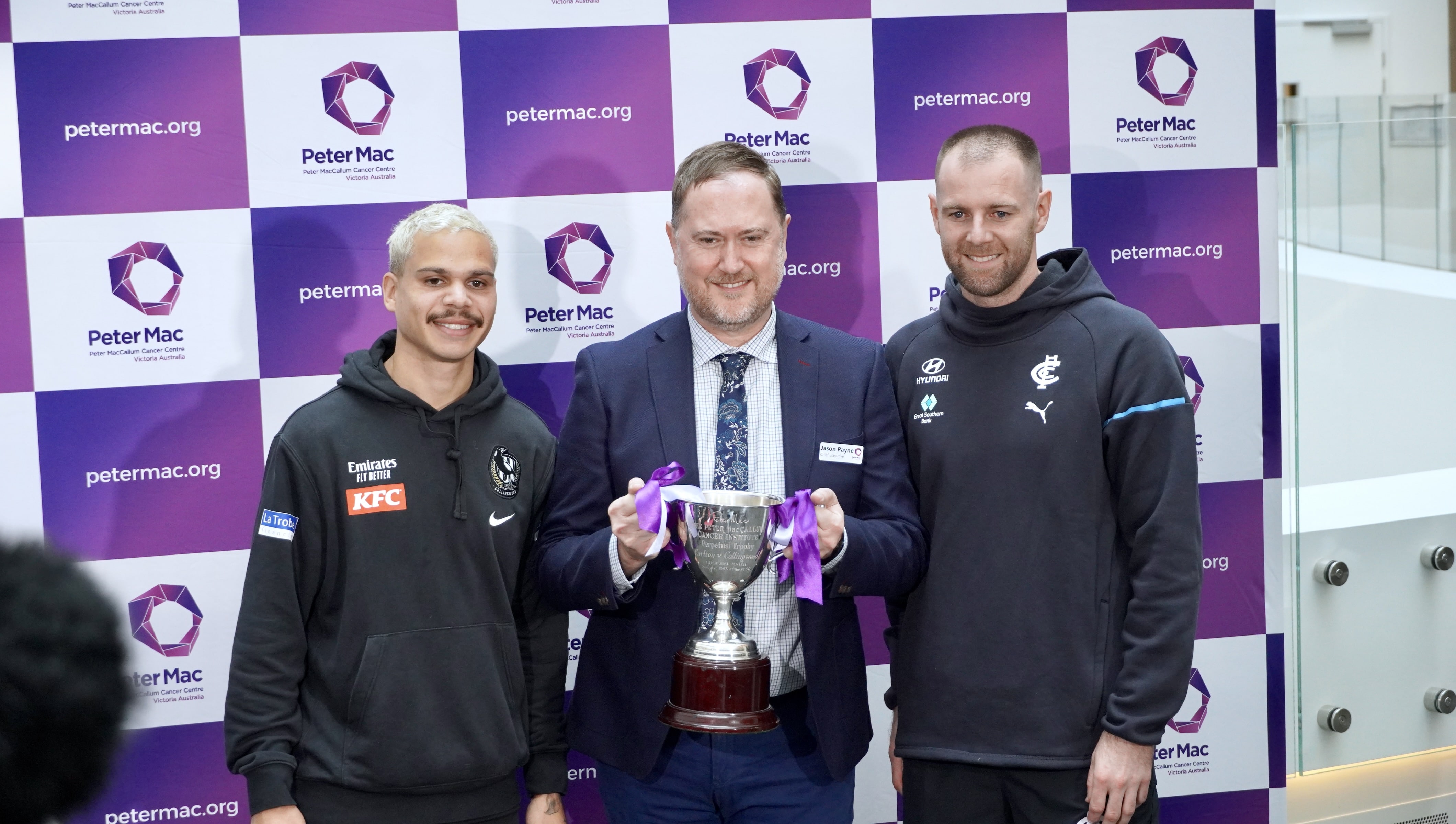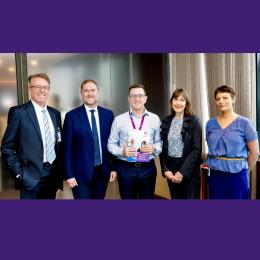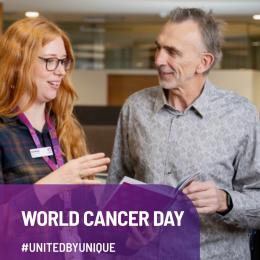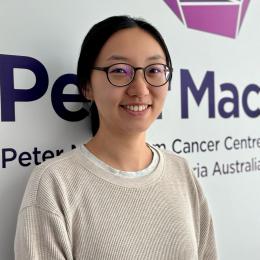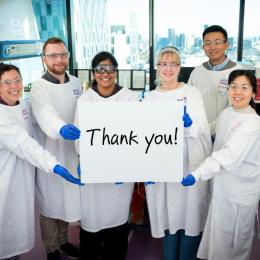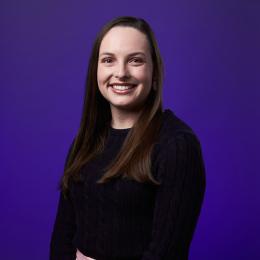Natasha and her family's history with breast cancer
3 min read 21 November 2022
Natasha is a mother of three girls, and sadly lost her own mother to breast cancer in 2008.
So when Natasha was diagnosed with an aggressive and fast-moving type of breast cancer in 2018, she was deeply afraid. Above anything else, Natasha feared that her cancer might take her from her daughters just like her mum was taken from her. She didn’t want them to feel the depth of grief and heartbreak that she had.
In order to be there for her girls and their futures, Natasha made the difficult decision to undergo a double mastectomy, in addition to having her ovaries and fallopian tubes removed.
"I’m still here to pick my two youngest girls up from school, rock out life with my oldest, and see them all achieve everything they want to.”
- Natasha
Thanks to advances in cancer research, Natasha has been living cancer-free ever since her surgery. Please continue reading Natasha’s story to find out just how much of an impact your support for cancer research has on lives like Natasha’s.
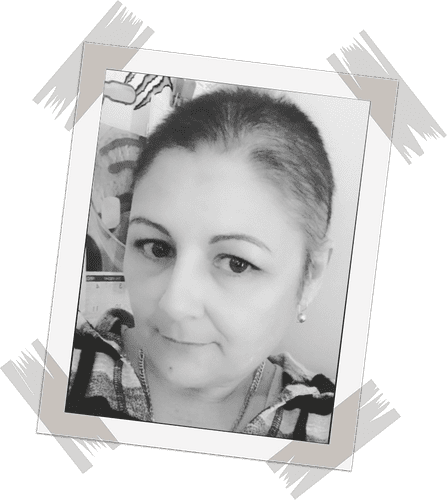
A history of breast cancer
It was a Sunday morning like any other. Natasha was enjoying breakfast with her cousin and his partner when a sudden pain brought her attention to a lump in her breast.
Immediately her first thought was cancer.
“My mum actually passed from secondary breast cancer as well and that had been, I think maybe 10 years since my mum had passed away.”
- Natasha
Natasha’s mother had passed away ten years earlier from breast cancer, but what she didn't know at the time was that Natasha had a mutation of the BRCA1 gene.
BRCA1 and BRCA2 are among the 20,000+ genes in the human body. When functioning normally, these two genes are very important to fighting cancer. BRCA1 and BRCA2 help to suppress tumours and keep potential cancer cells from growing and dividing too rapidly.
However, a mutation can sometimes occur that prevents these two genes from working normally. When a mutation happens in either of these genes, it can increase a person’s risk of cancer.
For Natasha, a BRCA1 mutation meant an increased risk of being diagnosed with breast and ovarian cancer.
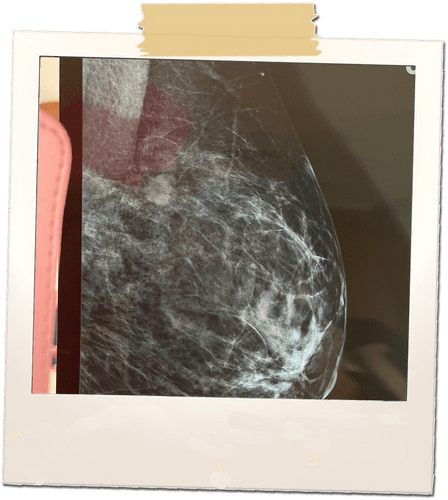
Scan of Natasha's breast during early diagnosis
Worried about the painful breast lump she'd found, Natasha went to her GP with her concerns. The following nine days were an overwhelming blur of doctors’ appointments, scans and biopsies.
“The next nine days was like this big whirlwind. I was off to see a surgeon over in Albury, and then he had a look and he sent me off for a biopsy, and then back to him, and then back to another, more scans and CAT scans and whatnot.”
- Natasha
Natasha was soon diagnosed with triple-negative breast cancer - a subtype that accounts for approximately 15% of all breast cancers, and is much more common in women with BRCA1 mutations. Triple-negative breast cancer can be an aggressive and fast-moving cancer, and often has a poor prognosis.
Within days of her diagnosis, Natasha underwent surgery to remove the lump.
“When the first doctor felt it, it was three millimetres, and by the end of the nine days when I had it removed, it had grown to 18 millimetres.”
- Natasha
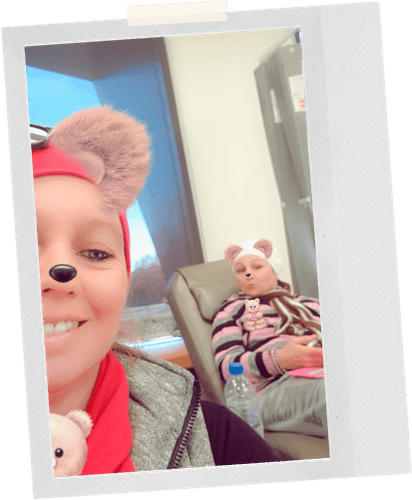
Natasha and her daughter Tyarna during chemotherapy
Natasha’s hope for her girls’ futures
Following her surgery, Natasha had to undergo four rounds of chemotherapy.
Unfortunately, this also meant having to put her life on hold while she completed her treatment. Each round of chemotherapy took a great deal out of her, and as a single mum of three, she had to rely on her eldest daughter and a friend to help her through that difficult period.
“My eldest daughter stepped up. She was taking care of my two youngest children and myself – making sure everybody was fed, cleaned and had what they needed because I physically couldn’t do it.”
- Natasha
Having lost her mother to breast cancer and being diagnosed with it herself, Natasha took a genetic test while undergoing chemotherapy which is when the BRCA1 mutation was confirmed.
Following this, Natasha made the brave decision to have a double mastectomy and surgery to remove her fallopian tubes and ovaries. These were preventative surgeries to lower her risk of developing further breast and ovarian cancers in the future.
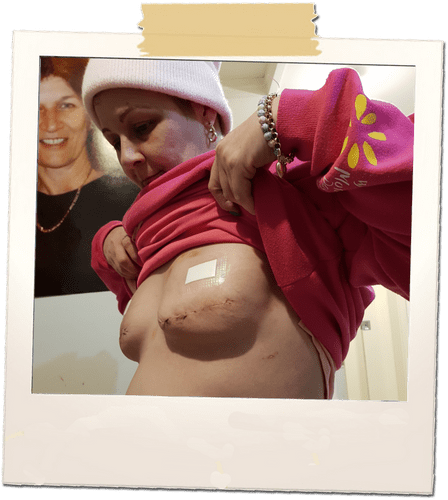
Natasha after her mastectomy
“I have three beautiful kids, three beautiful daughters, and I have to show them that it's not going to get me down, it's not going to kill me. So that I can move on in life and prevent things, I did what I had to.”
- Natasha
Natasha was determined that her daughters wouldn't lose her to breast cancer like she had with her own mother. Thanks to advances in cancer research, we are very happy to share that Natasha has been living cancer-free since her treatment.
“I enjoy life; my girls and I, we venture together and go and see family from here to there. It's beautiful, I love it here.”
- Natasha
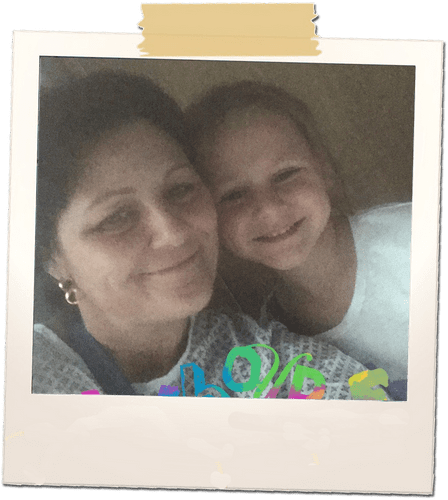
Natasha and her youngest daughter
However, Natasha is still worried about her girls’ futures, and the risk that they might have the BRCA1 mutation as well.
Not wanting her kids to go through what she did, Natasha hopes that cancer research will continue to advance, and that more effective treatments for BRCA1 and BRCA2 mutation cancers will be developed in the near future.
Natasha wants her girls to be able to live their lives without fearing cancer. But she knows that cancer runs in the family. In the hope that she might prevent her girls from going through what she did, Natasha has chosen to leave a gift in her Will to Peter Mac.
“I want to be able to be a part of moving forward cancer research. I want to be a part of helping people to keep living, and living a normal life.”
- Natasha
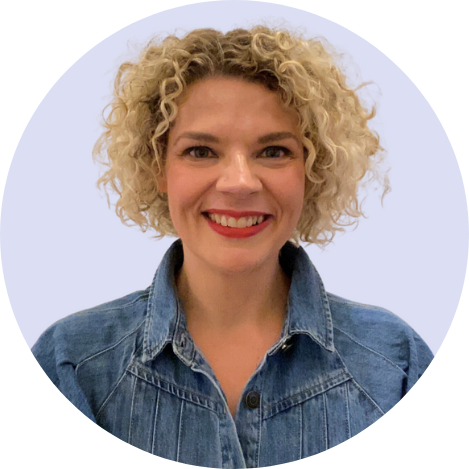
For further information or to speak to us about your wishes, please contact our Gifts in Wills and Estates Manager, Bethan Hazell on (03) 8559 6781 or email
@Follow us on Instagram (@SupportPeterMac)

